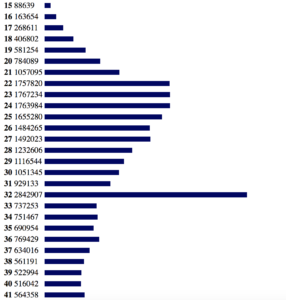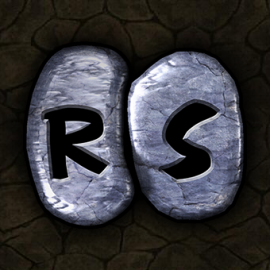Disclosure: I may earn affiliate revenue or commissions if you purchase products from links on my website. The prospect of compensation does not influence what I write about or how my posts are structured. The vast majority of articles on my website do not contain any affiliate links.
Recently, I found myself on the Wikipedia page for Memcached, a popular distributed object caching system. It turns out that the open-source project was developed by the guy who created LiveJournal. LiveJournal is a blogging site that started in 1999, was bought by a Russian company in 2007, and has been mostly forgotten by my generation.
In scrolling through the demographics section of the Wikipedia article, one stat caught my interest. There were about forty million accounts registered for LiveJournal and a statistics report retrieved from the website revealed that there was an exceptionally large group of 32-year-olds. The citation on Wikipedia claims this was retrieved in November 2012, so, though the demographics page isn’t live anymore, I was able to check the Wayback Machine. Sure enough:

There were almost twice as many 32-year-olds than any other age group. Since the stats were retrieved in late 2012, most of the people who were 32 then would have been born in 1980. At first, I was probably as perplexed as the author on Wikipedia who noted this data point. What’s so special about 1980?
For some people, signing up on these early social networking sites was the first them they had ever entered their birthday anywhere on the internet. Hard to imagine now, but these websites pioneered what it meant to have a virtual identity. Back then, people took great pleasure in filling in as much information as possible and then linking to their personal websites in their AOL Instant Messenger profiles. I was one of those people. Good thing I didn’t have Google Analytics back then.
Between the years 1999-2005, many of the people exploring websites like LiveJournal were American kids. I was in elementary school. When it came time to signup for a website, sometimes I would find that there was an age restriction after I had entered all my information. Were kids taking the time to figure out the exact fake birthdate that would allow them to sign up? No. We used 1980 because we found the year 1980 to be cool as hell.
Admitting this makes me feel old, but I’ve cherished growing up with the internet and I feel obligated to provide context for what was going on at this point in time. The realization that this sociological factoid could be lost if nobody ever bothers to write about was a source of inspiration. To summarize, 1980 was a vanity year for profiles in the early internet. It was also useful because it allowed people to subvert age restrictions. This was still common during early Myspace, but was never a trend I noticed on Facebook or on any website since.




